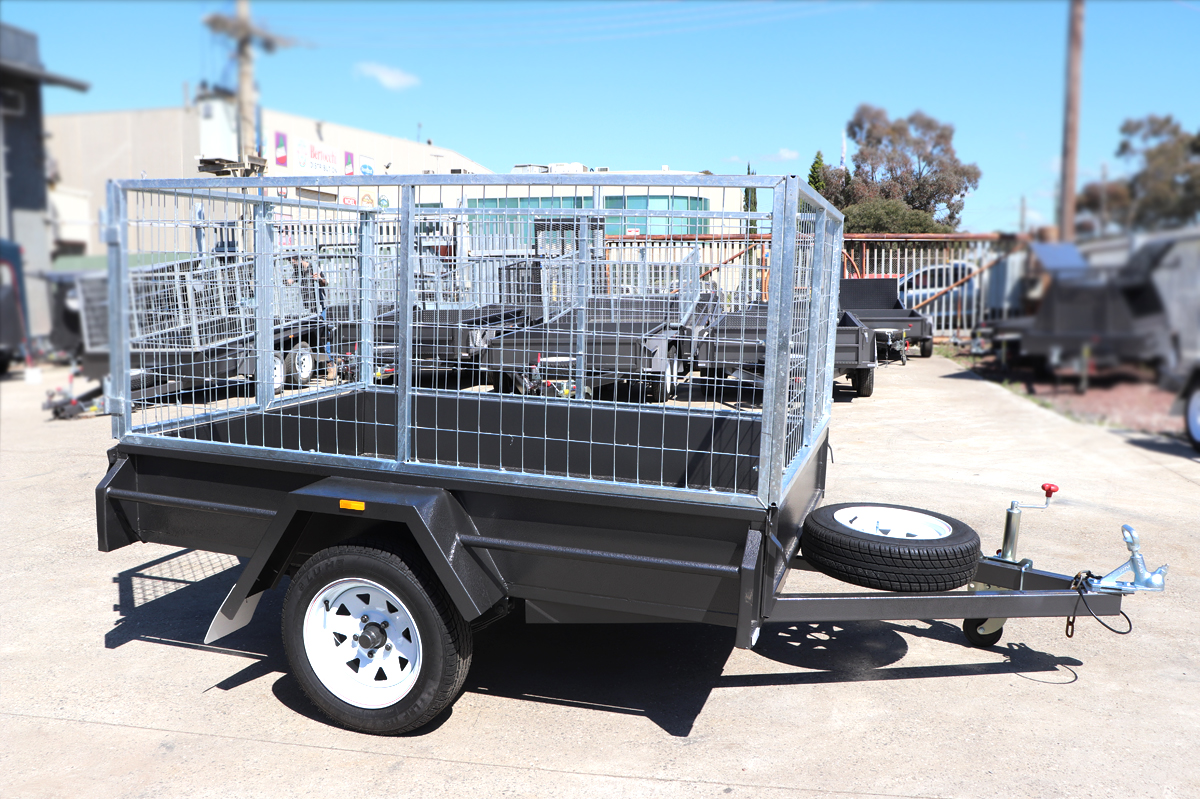Trailers are an essential component for enhancing transport efficiency, whether for recreational activities, business purposes, or heavy-duty hauling. By understanding the various types of trailers and their properties, users can make informed decisions to suit their specific needs.
Utility Trailers
Utility trailers are versatile and widely used for transporting a range of items, including furniture, equipment, and landscaping supplies. Typically constructed with a flatbed design, they come in various sizes, making them suitable for both small and large loads. Their properties include a sturdy frame, often made of steel or aluminum, and removable sides for easy loading and unloading. Many utility trailers are equipped with a ramp, allowing for convenient loading of heavier items, such as motorcycles or lawn equipment.
Enclosed Trailers
Enclosed trailers provide a secure and weatherproof space for transporting goods. Their fully enclosed design protects items from the elements, making them ideal for moving delicate or valuable possessions, such as antiques or electronics with trailer dealer. The walls are often insulated, which is beneficial for transporting temperature-sensitive materials. Enclosed trailers also feature multiple access points, including rear doors and side entrances, facilitating easier access to stored items.

Car Haulers
Car haulers are specifically designed for transporting vehicles, whether for personal use, car dealerships, or racing events. These trailers come in two main types: open and enclosed. Open car haulers are more cost-effective and suitable for transporting multiple vehicles at once, while enclosed car haulers provide added protection and security. Key properties include a low deck height for easy loading, strong tie-down points to secure vehicles, and a robust construction to withstand the weight and vibrations of the vehicles being transported.
Boat Trailers
Boat trailers are tailored for transporting watercraft, and their design varies significantly based on the type of boat. They often feature adjustable bunks or rollers that conform to the boat’s hull, ensuring a secure fit during transport. Properties of boat trailers include corrosion-resistant materials to withstand exposure to water and a braking system designed to accommodate the additional weight of the boat. Some models also come with guides to assist in loading and unloading.
Usage Considerations
When choosing a trailer, it is crucial to consider its intended usage. For instance, utility trailers are ideal for landscaping or home renovation projects, while enclosed trailers are perfect for moving household goods during relocation. Car haulers are essential for anyone in the automotive business, and boat trailers are a must-have for boating enthusiasts. Additionally, consider factors like towing capacity, trailer weight, and local regulations regarding trailer usage. Always ensure that your vehicle is equipped with the proper towing hitch and accessories to safely handle the load. Upgrading your haul with the right trailer can significantly enhance your transport capabilities. By understanding the various types of trailers, their properties, and intended usage, you can make an informed decision that meets your needs, whether for work or leisure. Investing in a high-quality trailer ensures reliability, safety, and efficiency, allowing you to tackle any hauling task with confidence.